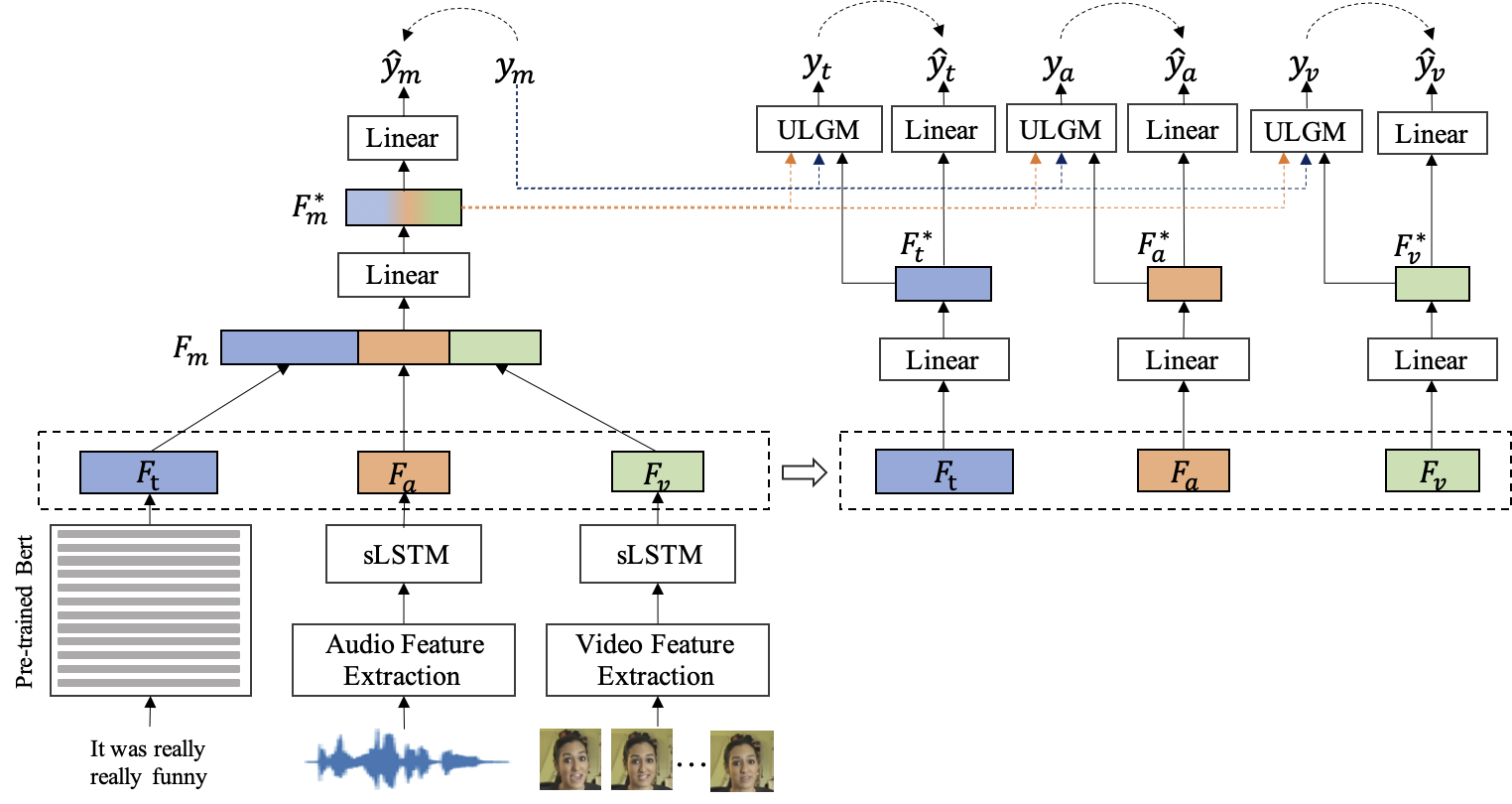Pytorch implementation for codes in Learning Modality-Specific Representations with Self-Supervised Multi-Task Learning for Multimodal Sentiment Analysis (AAAI2021). Please see our another repo MMSA for more details, which is a scalable framework for MSA.
- Datasets and pre-trained berts
Download dataset features and pre-trained berts from the following links.
- Baidu Cloud Drive with code:
ctgs - Google Cloud Drive
For all features, you can use SHA-1 Hash Value to check the consistency.
MOSI/unaligned_50.pkl:5da0b8440fc5a7c3a457859af27458beb993e088
MOSI/aligned_50.pkl:5c62b896619a334a7104c8bef05d82b05272c71c
MOSEI/unaligned_50.pkl:db3e2cff4d706a88ee156981c2100975513d4610
MOSEI/aligned_50.pkl:ef49589349bc1c2bc252ccc0d4657a755c92a056
SIMS/unaligned_39.pkl:a00c73e92f66896403c09dbad63e242d5af756f8
Due to the size limitations, the MOSEI features and SIMS raw videos are available in Baidu Cloud Drive only. All dataset features are organized as:
{
"train": {
"raw_text": [],
"audio": [],
"vision": [],
"id": [], # [video_id$_$clip_id, ..., ...]
"text": [],
"text_bert": [],
"audio_lengths": [],
"vision_lengths": [],
"annotations": [],
"classification_labels": [], # Negative(< 0), Neutral(0), Positive(> 0)
"regression_labels": []
},
"valid": {***}, # same as the "train"
"test": {***}, # same as the "train"
}For MOSI and MOSEI, the pre-extracted text features are from BERT, different from the original glove features in the CMU-Multimodal-SDK.
For SIMS, if you want to extract features from raw videos, you need to install Openface Toolkits first, and then refer our codes in the data/DataPre.py.
python data/DataPre.py --data_dir [path_to_Dataset] --language ** --openface2Path [path_to_FeatureExtraction]
For bert models, you also can download Bert-Base, Chinese from Google-Bert. And then, convert tensorflow into pytorch using transformers-cli
- Clone this repo and install requirements.
git clone https://github.com/thuiar/Self-MM
cd Self-MM
conda create --name self_mm python=3.7
source activate self_mm
pip install -r requirements.txt
-
Make some changes Modify the
config/config_tune.pyandconfig/config_regression.pyto update dataset pathes. -
Run codes
python run.py --modelName self_mm --datasetName mosi
Detailed results are shown in MMSA > results/result-stat.md.
Please cite our paper if you find our work useful for your research:
@inproceedings{yu2021le,
title={Learning Modality-Specific Representations with Self-Supervised Multi-Task Learning for Multimodal Sentiment Analysis},
author={Yu, Wenmeng and Xu, Hua and Ziqi, Yuan and Jiele, Wu},
booktitle={Proceedings of the AAAI Conference on Artificial Intelligence},
year={2021}
}

